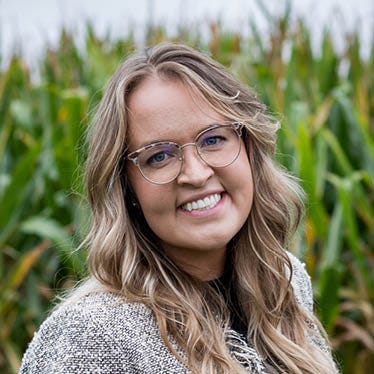November 30, 2022

Keeping expenses to a minimum is front of mind as many Illinois farmers make decisions for the 2023 crop season. As input costs continue to skyrocket, some farmers are considering what owning a sprayer would mean for their bottom line.
“Here in Illinois, at least when it comes to herbicides, we’re probably somewhere between 60% to 70% of our acres are not sprayed by the farmer themselves but instead by a custom applicator,” says Aaron Hager, University of Illinois weed scientist. “And that has been fairly consistent for the almost 30 years that I’ve been here at the university.”
In Hager’s time at U of I, herbicide application has been dominated by the retail sector, with a custom application rate of $7 to $9 per acre.
“Will that change in the future? It could possibly — but as farms have gotten larger, farmers are running into issues like finding quality labor to operate equipment,” Hager explains. “I think that’s a pretty large reason why our custom sector is so big here in Illinois.”
Matt Turner of Schroeder Farms, Bellflower, Ill., started spraying his own acres last growing season to recoup some margin from application and chemical expense. Prior to joining the family farm, Turner worked at Piatt County FS as a salesman and customer applicator.
“I am young and eager to do my part to improve the farm,” Turner says. “Because of my background with FS, I had comfortability and knowledge with spraying and figuring out what herbicides, insecticides and fungicides to use.”
Turner eased his way into spraying at their farm, starting with fungicide and taking premixed chemical from FS for postemergence-applied herbicides. The Schroeder Farms crew did some of their own pre-applied herbicides, but found that labor was a challenge when planting and groundwork also needed to be done.
“There’s certainly significant cost savings; it just comes down to whether guys are willing to do it or not, because it is certainly a big chunk to bite off,” Turner says. “You had better enjoy spraying, because there are a lot of hours spent in the cab and in the tender truck.”

In Turner’s opinion, the pros of spraying outweigh the cons as he considers management decisions for the coming year:
margins on custom applicator fee
quality — nobody knows the farm better than the farmer
timeliness and efficiency
ability to touch up minor spots in field
flexibility to purchase wholesale chemicals
better coverage with high-clearance sprayer than spray plane
Although, the cons should certainly be considered before purchasing a sprayer:
investment of buying sprayer
licensing and certified applicator’s license
time-consuming
time-sensitive
weather causing critical delays
technical training to operate equipment
in-field application knowledge and decisions
risk of drift onto neighbors
increased exposure to chemicals
“My advice is to have your expert in the field that you can trust,” Turner says. “There are so many questions throughout the year that we call game-time decisions on — things like different modes of action or respray considerations. For us, having that connection with FS has been huge for their inventory and knowledge base.”
As Turner looks to the next growing season, how much spraying will Schroeder Farms commit to in 2023?
“The last year went really smoothly and we’re happy with how things went,” he says. “The question would just be whether we want to spray all of our acres pre and post, which would probably mean hiring more staff.”
About the Author(s)
You May Also Like






